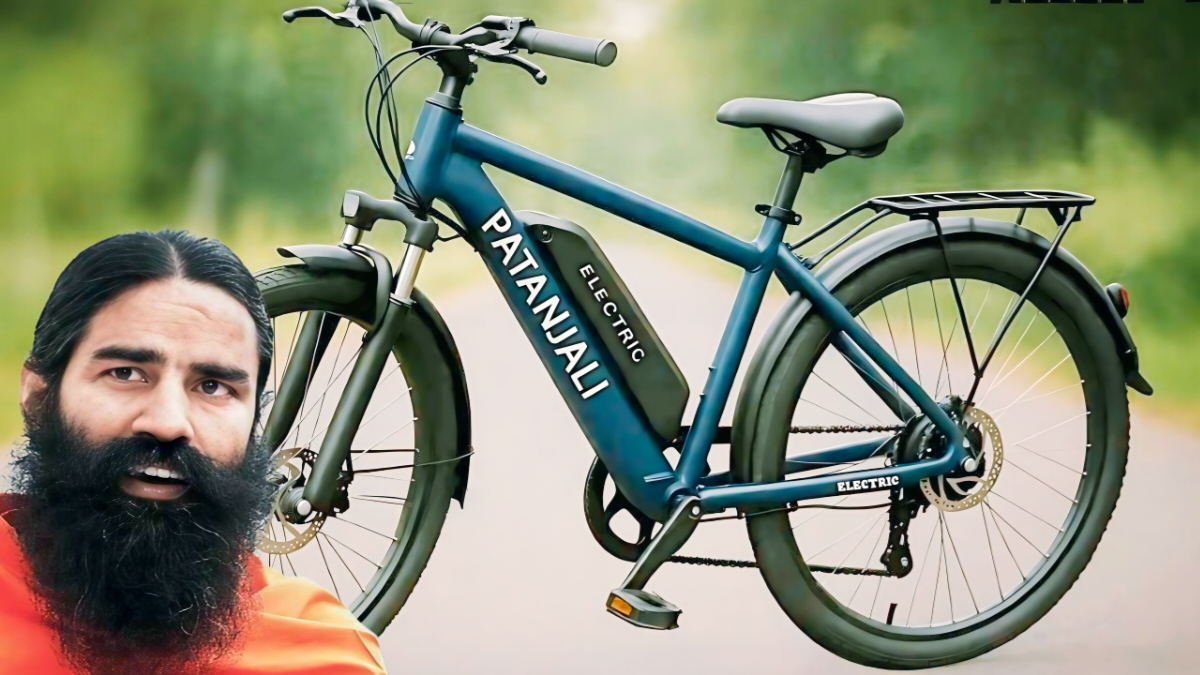Patanjali’s Electric Cycle: In a surprising move that could disrupt India’s transportation sector, Patanjali is reportedly preparing to launch an electric bicycle priced at just 5,000. Known for revolutionizing the FMCG and Ayurvedic product industry, Patanjali may now enter the EV market with a mission to provide affordable, eco-friendly commuting solutions. If true, this move could redefine mobility for millions of Indians, especially in semi-urban and rural areas. Here’s what we know so far about this game-changing initiative.
Ultra-Affordable Pricing
The standout feature of Patanjali’s electric cycle is its incredibly low price point — just 5,000. This is significantly cheaper than most electric cycles in India, which usually start from 25,000 and go beyond 50,000. If Patanjali delivers on this pricing, it could make clean mobility accessible to the masses. While specific specs and official confirmation are awaited, the buzz is already creating excitement across the country.
Targeting Rural and Budget Consumers
This electric cycle is expected to cater primarily to students, delivery agents, small-scale workers, and rural consumers who need a reliable mode of transport without spending a fortune. It aligns with Patanjali’s broader vision of self-reliance and swadeshi innovation. If the product performs as expected, it could become a common sight on roads in tier-2 and tier-3 cities.
Expected Features and Design
Though technical details have not been officially revealed, speculations suggest the cycle may feature a lightweight frame, a basic lithium battery pack, pedal-assist mode, and possibly a charging time of 4–5 hours. For 5,000, it may not include luxury features, but functional necessities like basic headlight, horn, and a compact digital meter could be present.
Environmental and Economic Benefits
If launched as expected, the Patanjali electric cycle could significantly reduce the carbon footprint of daily commutes. Replacing petrol-powered two-wheelers with electric cycles also lowers fuel dependency and air pollution. Economically, the savings on fuel and maintenance could be substantial, especially for low-income families and daily wage workers.
Market Impact and Competition
Patanjali’s entry into the EV sector could disrupt the existing electric bicycle market dominated by brands like Hero Lectro, Essel Energy, and Elecson. These brands currently offer models priced upwards of 25,000. A 5,000 competitor with a strong brand backing could pressure the market to reduce prices and increase affordability for consumers.
Awaiting Official Confirmation
As of now, no official launch date or specifications have been announced by Patanjali. The 5,000 price tag is based on media rumors and market buzz. Until Patanjali makes a formal declaration, it is advised to treat this news with cautious optimism. Nonetheless, even the possibility of such a launch has sparked interest and discussions among EV enthusiasts and common consumers alike.
Disclaimer
This blog post is based on publicly circulating information and media speculation. Patanjali has not officially confirmed the launch of an electric bicycle at 5,000. Readers are encouraged to verify details through Patanjali’s official announcements or websites before making purchase decisions or assumptions.




